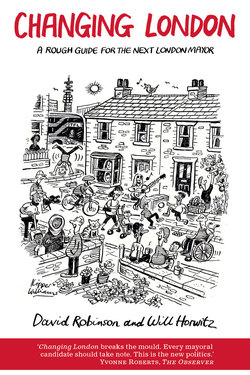Читать книгу Changing London - David Robinson - Страница 3
На сайте Литреса книга снята с продажи.
ОглавлениеForeword
This is a book about politics but it is also, for me, a book about London, the greatest city in the world and the most beautiful. It’s a city in which to walk and discover the hidden backstreets, the squares and small parks.
Start around Brick Lane and walk westwards into the global financial powerhouse of the City of London. Walk to Aldgate and down to Cornhill, past Bank and Mansion House and down to Blackfriars and the Embankment to see the Thames in full flow. Walk on past Temple and Somerset House towards the Houses of Parliament, Westminster Abbey through Parliament Square to St James’s Park. Turn and look back and see the Treasury and the Foreign Office divided by the statue of Clive of India. The Admiralty is to the left. This was once the epicentre of British imperial power.
Cross the Mall when the traffic has stopped at the lights. To the right is Admiralty Arch, to the left is Buckingham Palace, and in front is Lancaster House. Carry on up through Green Park to the commercial wealth of the West End, Mayfair and its hedge funds, Savile Row, Oxford Street, Selfridges – the first modern department store – then to Hyde Park, the site of countless demonstrations and protests.
It is a walk through thousands of years of history. London as a global mercantile city of bankers. The civic community that held its own against unruly monarchs. The unruly city of rioting apprentices and the London mob. The proletarian society that helped to make the English working class. Walk anywhere and England’s history is there.
And there is also the dark side of London. The poverty, the hard times and the inequalities that have existed together, often in the same street but now starting to harden into zones of exclusion. It is William Cobbett’s ‘great wen’. The anonymous, brutal city as machine that can crush the vulnerable and the lonely and shows little mercy.
But above and beyond all this, London is home. It is the countless small horizons of our everyday life – our local estate, our street and community, our neighbours, the local school. It is the everyday life of shops, clubs, pubs, parks, community associations and sport. We are an English multi-ethnic global city. We are parochial and international. Our personal family associations sometimes stretch around the world, sometimes no further than the next street.
All of this is embodied in London’s mayor. A mayor for the people of London, if still not yet for the city of London. That must wait for another democratic revolution. A mayor to stand up for our interests. This book is about the politics of mayoralty. Its message is that we can break with the inertia of Westminster and Whitehall and do something popular and better and different with politics. That’s been London’s history. With London’s mayor lies the possibility of injecting innovation into the torpor of our political system. A London that will give England and the UK a lead. Building partnerships with our other English cities to spread power around the country.
It is in this spirit of democratic renewal that Labour’s manifesto calls for change in how we govern our country: ‘Our governing mission is to break out of the traditional top-down, Westminster knows best approach, and devolve power and decision making to people and local places.’ Our reasoning is simple: ‘Labour believes meaningful and lasting change for the better is only possible when people are given the power to change things for themselves.’
So if you love London as your city and your home, please do read this excellent book. David is one of our city’s great social innovators. Is the political class ready for this kind of radical democratic politics? It doesn’t matter. Don’t wait for permission or nothing will change.
Jon Cruddas
April 2015
Jon Cruddas was head of Labour’s Policy Review 2012–15. He is also co-author of One Nation: Labour’s Political Renewal.1
